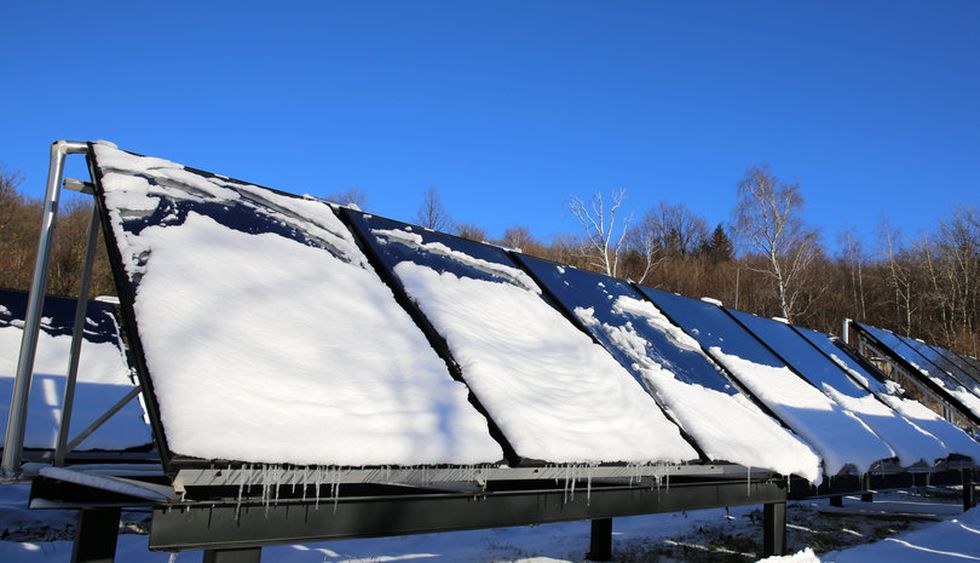Solar panels do not “run out of power” in winter, but their electricity generation can be significantly reduced during the winter months due to several factors.
- Reduced Sunlight: Winter days are typically shorter, and the angle of the sun in the sky is lower compared to summer. This means that solar panels receive fewer hours of sunlight, and the sunlight has to pass through more of the Earth’s atmosphere, which scatters and reduces the intensity of sunlight reaching the panels.
- Snow Cover: In regions with cold winters, snow accumulation on solar panels can block sunlight and reduce their efficiency. It’s essential to keep solar panels clear of snow for them to operate optimally.
- Temperature Effects: Solar panel efficiency tends to decrease as temperatures drop. While solar panels can still generate electricity in cold weather, they are generally less efficient at converting sunlight into electrical energy during winter months.
- Angle and Orientation: The optimal tilt angle and orientation (azimuth) for solar panels may need to be adjusted seasonally to maximize winter energy production. Panels may need to be tilted more upright to capture lower-angle winter sunlight effectively.
- Latitude: The location’s latitude plays a significant role in solar panel performance during the winter. Areas closer to the equator experience less variation in sunlight throughout the year, while regions farther from the equator may experience more dramatic reductions in winter energy production.
To address these challenges and ensure that your solar panel system continues to generate electricity during the winter, you can consider the following:
- Regular Snow Removal: If you live in an area with heavy snowfall, periodically clear the snow from your solar panels to allow them to capture sunlight. Be cautious when doing this to avoid damage to the panels.
- Optimal Tilt and Orientation: If your solar panels are adjustable, consider adjusting their tilt and orientation to better capture winter sunlight. Some tracking systems can automatically adjust panel angles throughout the day.
- Monitoring and Maintenance: Install monitoring systems to keep track of your solar system’s performance year-round. Regular maintenance and cleaning can help optimize energy production.
- Battery Storage: If you rely on solar energy for electricity and experience reduced generation during the winter, consider using a battery storage system to store excess energy during sunnier days and use it during cloudy or nighttime hours.
- Alternative Energy Sources: In regions with severe winter conditions and limited sunlight, you may need to rely on alternative energy sources or grid-connected power during the winter months.
While solar panels can still generate electricity in the winter, it’s essential to set realistic expectations for their performance and take measures to maximize their efficiency during the colder, darker months.


